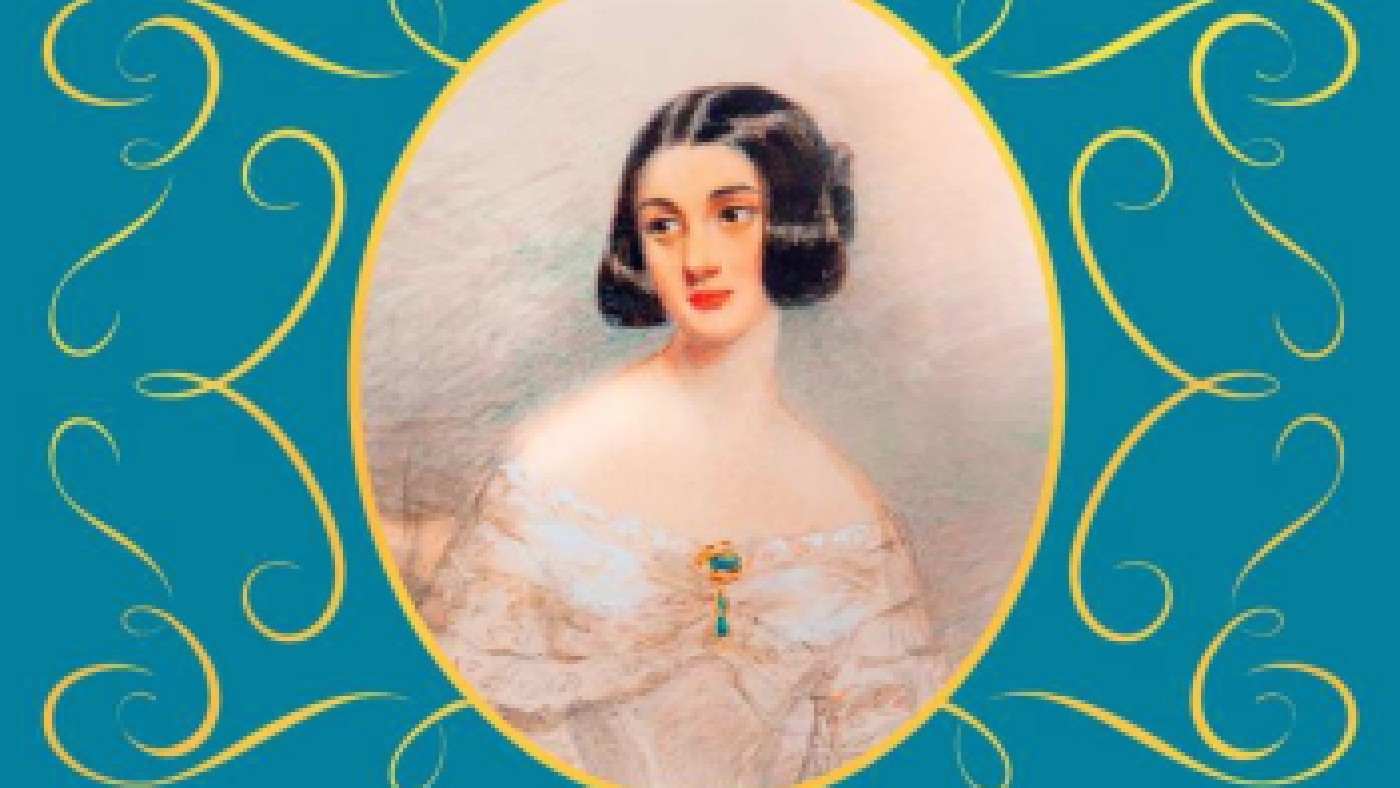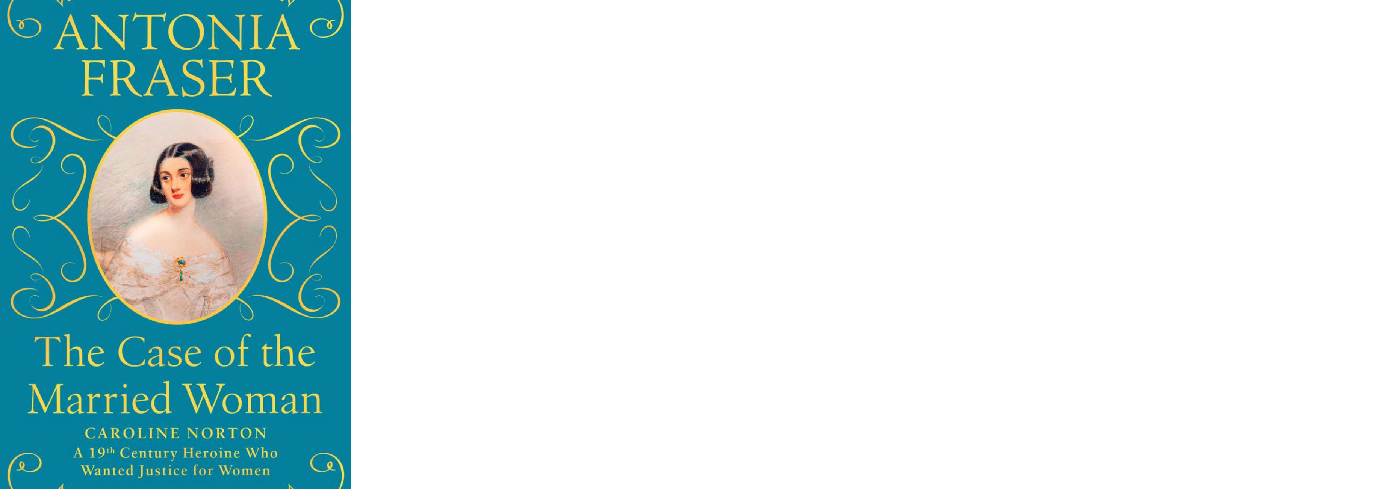Book of the week: The Case of the Married Woman
Antonia Fraser’s biography takes on a life that ‘reads like a Victorian sensation novel’

A free daily email with the biggest news stories of the day – and the best features from TheWeek.com
You are now subscribed
Your newsletter sign-up was successful
Caroline Norton, the subject of Antonia Fraser’s “compulsively readable” biography, had a life which “reads like a Victorian sensation novel”, said Katie Rosseinsky in the London Evening Standard. Born in 1808, she was the granddaughter of the Irish playwright Richard Brinsley Sheridan, and was one of a trio of widely admired sisters dubbed the “Three Graces”.
Following a “financially expedient” marriage to Tory MP George Norton in 1827, Caroline moved to London, started a fashionable salon, and forged a lucrative career as a poet and novelist. George, angered at “having his star eclipsed by a woman”, and jealous of her close friendship with Lord Melbourne (a salon regular), began subjecting his wife to “vicious” attacks, once kicking her so hard he caused a miscarriage. Caroline, however, had no legal redress: wives – and their earnings – were their husband’s “property”.
In 1835, Caroline fled the marital home, taking her three sons with her, said Roger Lewis in The Daily Telegraph. However, George reclaimed the boys – they were “bundled into a hackney carriage” – and treated them appallingly. “One son, Willie, died of medical neglect after a riding accident, aged nine; another, Brin, went clinically mad.”
The Week
Escape your echo chamber. Get the facts behind the news, plus analysis from multiple perspectives.

Sign up for The Week's Free Newsletters
From our morning news briefing to a weekly Good News Newsletter, get the best of The Week delivered directly to your inbox.
From our morning news briefing to a weekly Good News Newsletter, get the best of The Week delivered directly to your inbox.
Norton also launched a legal action against Lord Melbourne (by now prime minister), accusing him of “criminal conversation” – adultery – with Caroline. “Fraser has great fun with the case, which titillated London in June 1836” with its details of Melbourne’s regular visits, and “use of the back entrance”. Though Melbourne was acquitted, the case left a permanent stain on Caroline’s character. This impressively researched and “rousing” book is “classic Antonia Fraser”.
Prevented from ever seeing her children, Caroline poured her energies into reforming the law, said Lara Feigel in The Guardian. She helped initiate the 1839 Custody of Infants Act, granting married women the right to petition for custody of their children. Not that it helped her: George moved their sons to Scotland, out of the Act’s jurisdiction.
Caroline also played a part in shaping the Matrimonial Causes Act of 1857 (making divorce through the civil courts possible for the first time) and other reforms giving married women some rights over their own property. She wasn’t a likeable character, and nor was she a feminist, said Daisy Goodwin in The Sunday Times: she thought women should be protected by men. But her actions greatly improved the lot of women. “Fraser is surely right to call her a 19th century heroine.”
Weidenfeld 304pp £25; The Week Bookshop £19.99
A free daily email with the biggest news stories of the day – and the best features from TheWeek.com

The Week Bookshop
To order this title or any other book in print, visit theweekbookshop.co.uk, or speak to a bookseller on 020-3176 3835. Opening times: Monday to Saturday 9am-5.30pm and Sunday 10am-4pm.
-
 Switzerland could vote to cap its population
Switzerland could vote to cap its populationUnder the Radar Swiss People’s Party proposes referendum on radical anti-immigration measure to limit residents to 10 million
-
 Political cartoons for February 15
Political cartoons for February 15Cartoons Sunday's political cartoons include political ventriloquism, Europe in the middle, and more
-
 The broken water companies failing England and Wales
The broken water companies failing England and WalesExplainer With rising bills, deteriorating river health and a lack of investment, regulators face an uphill battle to stabilise the industry
-
 A thrilling foodie city in northern Japan
A thrilling foodie city in northern JapanThe Week Recommends The food scene here is ‘unspoilt’ and ‘fun’
-
 Tourangelle-style pork with prunes recipe
Tourangelle-style pork with prunes recipeThe Week Recommends This traditional, rustic dish is a French classic
-
 Samurai: a ‘blockbuster’ display of Japan’s legendary warriors
Samurai: a ‘blockbuster’ display of Japan’s legendary warriorsThe Week Recommends British Museum show offers a ‘scintillating journey’ through ‘a world of gore, power and artistic beauty’
-
 BMW iX3: a ‘revolution’ for the German car brand
BMW iX3: a ‘revolution’ for the German car brandThe Week Recommends The electric SUV promises a ‘great balance between ride comfort and driving fun’
-
 Arcadia: Tom Stoppard’s ‘masterpiece’ makes a ‘triumphant’ return
Arcadia: Tom Stoppard’s ‘masterpiece’ makes a ‘triumphant’ returnThe Week Recommends Carrie Cracknell’s revival at the Old Vic ‘grips like a thriller’
-
 My Father’s Shadow: a ‘magically nimble’ love letter to Lagos
My Father’s Shadow: a ‘magically nimble’ love letter to LagosThe Week Recommends Akinola Davies Jr’s touching and ‘tender’ tale of two brothers in 1990s Nigeria
-
 Send Help: Sam Raimi’s ‘compelling’ plane-crash survival thriller
Send Help: Sam Raimi’s ‘compelling’ plane-crash survival thrillerThe Week Recommends Rachel McAdams stars as an office worker who gets stranded on a desert island with her boss
-
 Book reviews: ‘Hated by All the Right People: Tucker Carlson and the Unraveling of the Conservative Mind’ and ‘Football’
Book reviews: ‘Hated by All the Right People: Tucker Carlson and the Unraveling of the Conservative Mind’ and ‘Football’Feature A right-wing pundit’s transformations and a closer look at one of America’s favorite sports